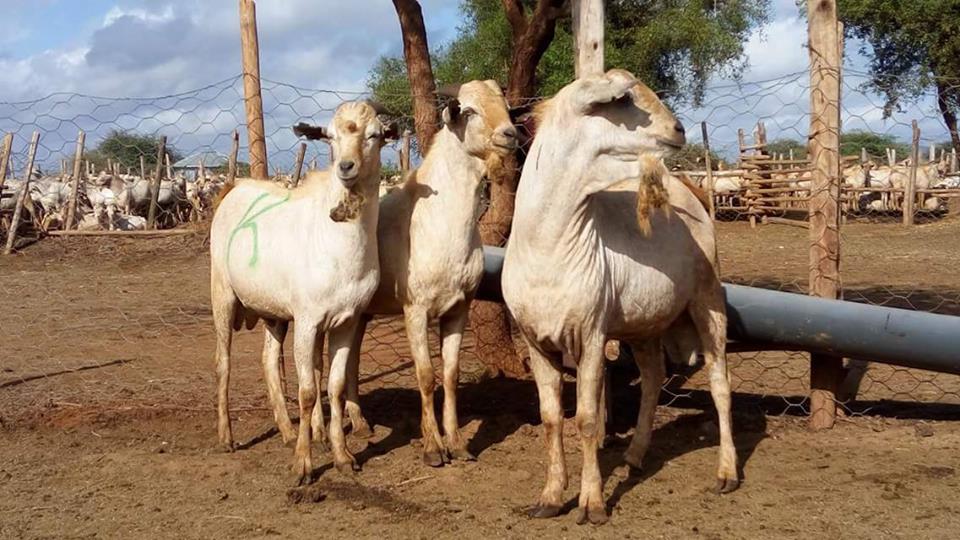
By Lydia Gichuki
Galla goats, which mature much faster than the common Small East Africa (SEA) indigenous breeds, are earning semi-arid farmers as much as Sh42,000 after nine months, thanks to their ability to gain weight rapidly after a dry spell, resistance to gastro-intestinal parasites and infectious diseases, and a host of other stellar characteristics.
Antony Mutembei a certified breeder and veterinary from Tharaka Nthi County says rearing the goats is also very cheap, even for farmers with low incomes, as they are hardy browsers and can feed on most types of vegetation, including shrubs and twigs, making feeding affordable for many farmers.
Moreover, where indigenous breeds are often jumpy and very unfriendly, the Gallas are easy to manage as they are friendly and docile.
Related News: Farmers prefer Galla breed to traditional goats for quick cash
Larger in size than other goats, Gallas build more meat, with their ample bone structure for muscle formation, and they gain weight rapidly even where the conditions are harsh.
“I sell a male Galla goat at six months at Sh8,000 which most of my customers sell at Sh50,000 at 15 months when it fully matures and can weigh up to 60 kilograms. For the females, at six months, I sell at Sh7,000 and they can be sold at Sh30,000 when they fully mature at 15 months,” said Mutembei
That compares with the indigenous breed gains of around 40kg for males and 20kg for females, which fetch market prices of Sh8,000 to Sh15,000 when fully matured.
Due to their faster reproduction cycle, female Gallas can also be served at six months and produce two more kids before fully maturing, as their gestation period is 150 days. Meanwhile, the males can generate income through the insemination of other goats at a fee Sh500 from as early as five months, while awaiting maturation.
Related News: How to import breeding goats into Kenya
As producers of milk, the Galla goats are known as milk queens, as they produce 3 litres of milk a day, compared to crossbreeds, which produces 1.5 litres, and indigenous breeds, which produce 0.5 litres a day.
The milk is highly sought after due to its nutritional value, which makes it pricey, with a litre selling for Sh200 at the farm gate and Sh300 in supermarkets.
Goat milk is superior to cow milk, because it is high in calcium and amino acids, which are necessary for the development of healthy bones, and has 35 per cent fatty acids, compared with 17 per cent in cow milk, and is lower in cholesterol and fat content, which makes digestion faster and is recommended for children and for those who are sickly or recuperating.
However, to get the full benefits from the goats, Dr Kipkemoi Changwony, Director of the Kenya Agricultural & Livestock Research Organization (Kalro) Sheep and Goats Institute in Marsabit, advises farmers to acquire breeds from Kalro or from breeders certified by the Directorate of Veterinary Services, to avoid being conned into buying half breeds.
Certified Galla goats have better survival rates, as they are vaccinated against diseases as part of the procedures laid out by the directorate.
Kalro sells its certified goats each November, in an auction which is advertised in national newspapers with the dates and venues.
Other certified Galla goat sellers include:
Antony Mutembei-0717411815
Festus Mbuvi-0711752285
Akif Dr-07207333509
Write comment (2 Comments)















